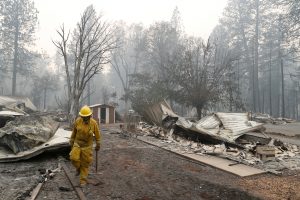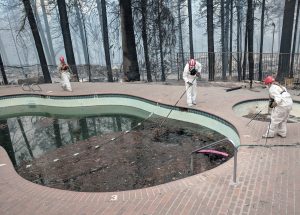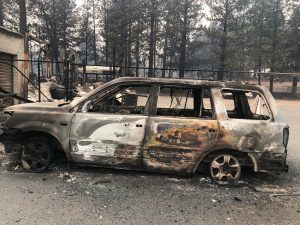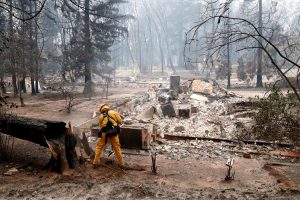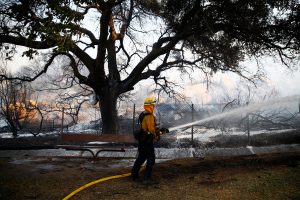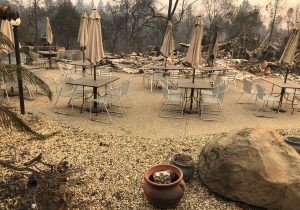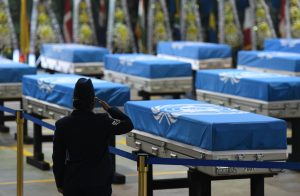
By Cindy Silviana
JAKARTA (Reuters) – Indonesian authorities on Monday said they will immediately begin to download contents of a cockpit voice recorder (CVR) from a Lion Air jet that crashed into the sea near Jakarta more than two months ago, killing all 189 people on board.
The crash was the world’s first of a Boeing Co 737 MAX jet and the deadliest of 2018, and the recovery of the aircraft’s second black box from the Java Sea north of Jakarta on Monday may provide an account of the last actions of the doomed jet’s pilots.
“We have our own laboratory and personnel to do it,” Haryo Satmiko, deputy chief of the transportation safety committee, told Reuters.
Satmiko said it had in the past taken up to three months to download, analyze and transcribe the contents of recorders.
Contact with flight JT610 was lost 13 minutes after it took off on Oct. 29 from the capital, Jakarta, heading north to the tin-mining town of Pangkal Pinang.
A preliminary report by Indonesia’s transport safety commission focused on airline maintenance and training, as well as the response of a Boeing anti-stall system and a recently replaced sensor, but did not give a cause for the crash.
A group of relatives of victims urged the transportation safety committee to reveal “everything that was recorded” and to work independently.
Navy Lieutenant Colonel Agung Nugroho told Reuters a weak signal from the recorder was detected several days ago and it was found buried deep in soft mud on the seafloor in water about 30 meters (98 ft) deep.
“We don’t know what damage there is but it has obvious scratches on it,” Nugroho said.
Pictures supplied by an official from the transportation agency showed chipped bright orange paint on the CVR memory unit, but no major dents.
Nurcahyo Utomo, an investigator at the safety committee, told reporters it should take no more than five days to download the data, but if there was a problem the CVR would be sent to the manufacturer.
“We hope it can be done as soon as possible because all the Boeing operators are waiting,” said Utomo, adding that investigators hoped to complete the full report within a year of the crash.
With the recovery of the CVR, officials said there was no plan to continue searching for other parts of the wrecked plane, including an angle of attack sensor that was suspected to have been faulty.
The navy’s Nugroho said human remains had been found near the location of the CVR, about 50 meters from where the crashed jet’s other black box, the flight data recorder (FDR), was found three days after the crash.
Investigators brought in a navy ship last week after a 10-day, 38 billion rupiah ($2.70 million), an effort funded by Lion Air failed to find the recorder. Bureaucratic wrangling and funding problems hampered the initial search.
The L3 Technologies Inc CVR was designed to send acoustic pings for 90 days after a crash in water, according to an online brochure from the manufacturer.
That would mean that after Jan. 27, investigators could have faced a far bigger problem in finding the CVR buried along with much of the wreckage deep in mud on the sea floor..
Boeing said in a statement on Monday that it was taking “every measure” to fully support this investigation.
“As the investigation continues, Boeing is working closely with the U.S. National Transportation Safety Board as a technical advisor to support Indonesia’s National Transportation Safety Committee,” the planemaker said in a statement.
Since the crash, Lion Air has faced scrutiny over its maintenance and training standards, and relatives of victims have filed at least three lawsuits against Boeing.
(Additional reporting by Agustinus Beo Da Costa; Writing by Fergus Jensen and Tabita Diela; Editing by Robert Birsel and Darren Schuettler)

